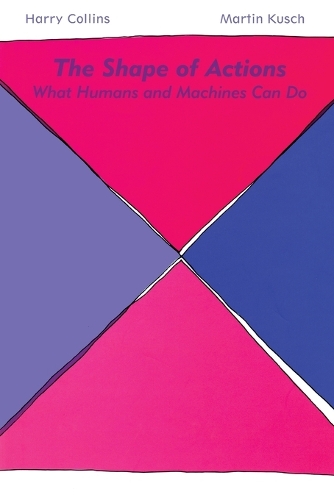
The Shape of Actions: What Humans and Machines Can Do
(Paperback)
Publishing Details
The Shape of Actions: What Humans and Machines Can Do
By (Author) Harry Collins
By (author) Martin Kusch
MIT Press Ltd
MIT Press
5th January 1999
United States
Classifications
Professional and Scholarly
Non Fiction
Physical Properties
Paperback
224
Width 152mm, Height 229mm, Spine 11mm
Description
What can humans do What can machines do How do humans delegate actions to machines In this book, Harry Collins and Martin Kusch combine insights from sociology and philosophy to provide a novel answer to these increasingly important questions.The authors begin by distinguishing between two basic types of intentional behavior, which they call polimorphic actions and mimeomorphic actions. Polimorphic actions (such as writing a love letter) are ones that community members expect to vary with social context. Mimeomorphic actions (such a swinging a golf club) do not vary. Although machines cannot act, they can mimic mimeomorphic actions. Mimeomorphic actions are thus the crucial link between what humans can do and what machines can do.Following a presentation of their detailed categorization of actions, the authors apply their approach to a broad range of human-machine interactions and to learning. Key examples include bicycle riding and the many varieties of writing machines. They also show how their theory can be used to explain the operation of organizations such as restaurants and armies. Finally, they look at a historical case-the technological development of the air pump-applying their categorization of actions to the processes of mechanization and automation. Automation, they argue, can occur only where what we want to bring about can be brought about through mimeomorphic action.
Author Bio
Harry Collins is Distinguished Research Professor of Sociology and Director of the Centre for the Study of Knowledge, Expertise, and Science at Cardiff University. A Fellow of the British Academy, he is the author of Gravity's Shadow; Gravity's Ghost; Gravity's Ghost and Big Dog; Gravity's Kiss- The Detection of Gravitational Waves (MIT Press); and many other books. Martin Kusch is Professor in the Department of Philosophy at the University of Vienna.
